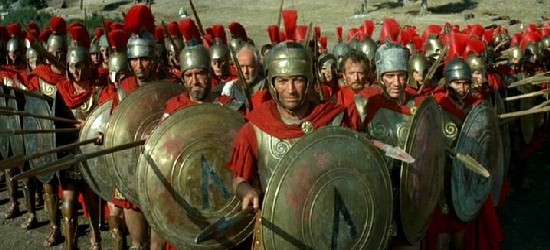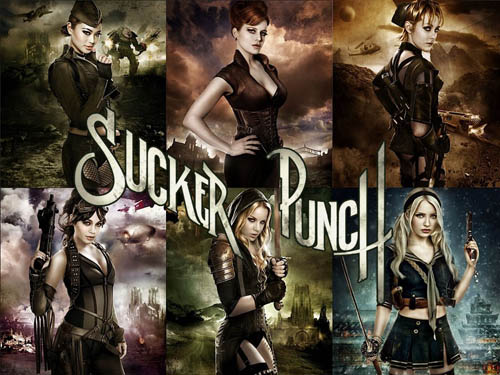David Norris is an energetic New York Congressman who’s now making a bid for one of the state’s senatorial seats. David is an amiable guy, running on the idea that he’s more appealing to a younger voter and he has great plans for the future. David’s got a bit of a past though and it catches up to him, giving him a sudden drop in the polls which of course results in his losing the election. David wants some time alone to prepare his concession speech and quickly makes his way to what he believes to be an empty men’s room. As he’s talking to himself and working things out, he hears a noise from a stall, and realizes he’s not alone. An attractive woman named Elise steps out, and after they converse a bit, David is inspired. All through this, David is being watched.
When he makes his concession speech, David comes clean with all of his supporters and talks about how his entire campaign was so focused group engineered that it got him away from showing his true self. He’s cheered by the crowd and from there makes his way to working in the private sector. In the background, the watchers are making sure that something needs to happen to David at a precise moment. The watcher assigned to David falls asleep on the job, and doesn’t cause the event that is supposed to happen. Instead, as David is getting on a bus to go to work, he suddenly comes across Elise again. And the two strike up a further conversation both being enchanted by each other. Now the mysterious watchers are scrambling to do what they can to fix things, because David’s involvement with Elise is not in their master plan.
And that’s the starting point of The Adjustment Bureau the newest movie starring Matt Damon and the first movie directed by George Nolfi, who’s been better known as a writer for film’s like The Bourne Ultimatum and Ocean’s Twelve. This is probably better described as a light romantic drama with some fantastic overtones. It has a few good points, but for the most part, this just didn’t work for me at all, but then I don’t think I’m it’s intended audience either.
For me, the draw for the movie was twofold: this was based on a short story by Philip K. Dick and it’s star, Matt Damon. While I’ve not read the short story, I’ve managed to have a pretty good time with other movies adapted from Dick’s work. I’ve also always liked Matt Damon and have really admired his work in most all of the movies I’ve seen from him. So, that’s what got me in the door.
What made me want to run for the door was the way this was all put together. The way I see it, there were three elements that basically just don’t jibe for me here. One being the passage of time and character development considering that, another being the attempts to explain the Adjustment Bureau itself, and the final just being the tone of the film.
Let’s get to the Bureau itself first, and a warning there are spoilers here, so if you want to see this cold, I’d suggest skipping the next paragraph or so. What we’re led to believe about the Bureau is that they’re some omnipotent force that’s out there to make sure that we humans run our lives to a carefully laid out plan. While it’s never said directly (one would assume not to offend anyone’s religious beliefs), it’s implied that the bureau are agents of Heaven who work for who they call The Chairman (who as explained in the movie, we know by many different names, but let’s just say God and get it out of the way). The Bureau’s agents can freeze time and move quickly between destinations thanks to the cosmic placement of key doorways and the mysterious hats that they wear (which leads to the funniest line in the film, though I doubt it’s intentionally so). But they also have a problem with water and that sort of disrupts their ways of tracking their targets. They don’t have enough manpower to cover every single human, though they do the best they can with who they’ve figured to be the key people to keep us from screwing things up further. And as the movie plays, we have one key scene which tells us that the plan has been rewritten once for David’s destiny.
Now if you’re sitting back and thinking about all of this while it’s playing out, you can’t help but ask a lot of questions that point to some pretty dramatic holes in the logic of the whole thing. Part of the promotion for this movie has been calling it “more mind-bending than Inception” and at least for me, that opens the door for picking this thing apart. Inception’s rules are clearly laid out and everything works within, Christopher Nolan takes the time to make sure they do. Thanks to The Adjustment Bureau’s breezy nature, this isn’t concerned with making it’s rules work in a logical manner, but more in just being conveniences to make sure that Matt Damon and Emily Blunt can overcome the whole thing in the end. The big picture isn’t the concern, at least for the filmmakers’ idea of what they think the audience wants. The biggest question looms though, that if this is a major master plan for how we’re supposed to survive, wouldn’t you at least think that there are numerous back-up measures set in case certain key things don’t play out? Well, that was a key question for me anyway.
Second, the passage of time and character development. After things have been revealed to David about the Adjustment Bureau and it’s master plan, three years pass and in this three-year period, nothing at all has really changed for David as a character except that he’s getting ready to make another bid for a senator’s seat. He’s still single-minded about Elise after what amounts to maybe somewhere between 5-7 minutes of talking and pure animal attraction. On top of that, there’s been nothing further brought up around the idea that this mysterious group of divine figures have been following him. David does manage to find Elise again, and this time he really does get further involved. This escalates things for the Bureau, and now a top agent has to get involved to really put the fix in. Once this happens, David and Elise are separated for another 11 months before they come together again. Even though David is still single-minded about Elise, he’s managed to overcome all of his past personal indiscretions and now it looks like that senatorial seat is a lock. To me, this sort of obsession along with what would be a grueling campaign would, I’d tend to think, drive a guy a little bonkers. But exploring that isn’t this movie’s concern, it’s the idea that we’ve got to get these two kids together.
Finally, we get to the tone of the film. As this starts, it all seems very light and fluffy. The movie’s score is this sort of lyrical stuff that I’d expect to hear in a romantic comedy (James L. Brooks’ Broadcast News is what came to mind) and the dialogue and banter is all on the light and friendly side, basically it’s all very non-threatening. That non-threatening feel though also extends to the Bureau itself. Oh sure, they make the attempt to say that if everything fails, they (the Bureau) will make a complete mindwipe on David. But it’s all talk, and no action like this is ever shown, which brings us back to the basic contradictions of the nature of the Bureau itself. When the film builds to it’s climax, it tries to escalate everything so that there should be some danger present, but it doesn’t work and so I never felt there was any risk of anything at all.
Now, some might think that I’m asking too much out of this. I don’t think so, especially considering that it is adapted from a Philip K. Dick story and it’s promotion does make the comparison with Inception. With these two factors in place, I really do think this opens itself up to dissection.
To be fair though, I do think the film has a great look. It’s extremely well shot and the effect of traveling through these doorways to faraway areas in New York City is terrific.
In addition, I think the performances are just fine, they’re just left to the mercy of Nolfi not wanting to go into any great depth with them. Emily Blunt (who plays Elise) certainly does a fine job, though she’s not given altogether that much to do other than just enchant Matt Damon. Damon is certainly affable enough and he and Blunt have some good chemistry together. Anthony Mackie plays Mitchell, the Bureau agent who’s been assigned to David and he plays this as if he’s certainly troubled by all that he has to do to keep the plan running. Terrance Stamp plays Thompson, the higher-grade agent who has to come in after the three-year period has passed. Though he’s very two-dimensional, his authority does come through. The best of the cast for me though was John Slattery who plays Mitchell’s superior, Richardson. Though I disagree with the tone of the movie, I think Slattery is the one member of the cast who does the best with trying to balance it all out.
I’ve been told by some that I just don’t have any sort of affinity for a romantic movie at all. There’s some truth to that, but I think it’s just more that I don’t have much of an affinity for them the way they’re told today. I mentioned Broadcast News above, and I think that’s a terrific film. Even though I didn’t much care for The Adjustment Bureau, I don’t think that will be the case for most people who see it. Still, I think it’s tone, it’s lack of logical character development with considerable time passage and the very nature of the Bureau itself all are contradictory to the type of fluff that I think this move is poising itself to be, that being a love conquers all film (and there’s nothing wrong with that when it’s done well). With that said, I’d certainly like to offer up a few alternatives that deal with some similar elements. Warren Beatty’s Heaven Can Wait and Albert Brooks’ highly underrated Defending Your Life deal with some of the same things seen here in a far more satisfying manner, and yet they don’t leave much to question at all. For me, that can’t be said about The Adjustment Bureau.




